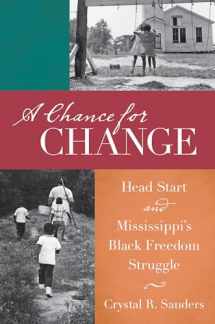
A Chance for Change: Head Start and Mississippi's Black Freedom Struggle (The John Hope Franklin Series in African American History and Culture)
Book details
Summary
Description
In this innovative study, Crystal Sanders explores how working-class black women, in collaboration with the federal government, created the Child Development Group of Mississippi (CDGM) in 1965, a Head Start program that not only gave poor black children access to early childhood education but also provided black women with greater opportunities for political activism during a crucial time in the unfolding of the civil rights movement. Women who had previously worked as domestics and sharecroppers secured jobs through CDGM as teachers and support staff and earned higher wages. The availability of jobs independent of the local white power structure afforded these women the freedom to vote in elections and petition officials without fear of reprisal. But CDGM's success antagonized segregationists at both the local and state levels who eventually defunded it.
Tracing the stories of the more than 2,500 women who staffed Mississippi's CDGM preschool centers, Sanders's book remembers women who went beyond teaching children their shapes and colors to challenge the state's closed political system and white supremacist ideology and offers a profound example for future community organizing in the South.


We would LOVE it if you could help us and other readers by reviewing the book
Book review



